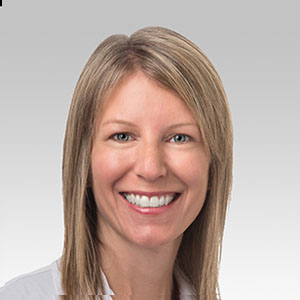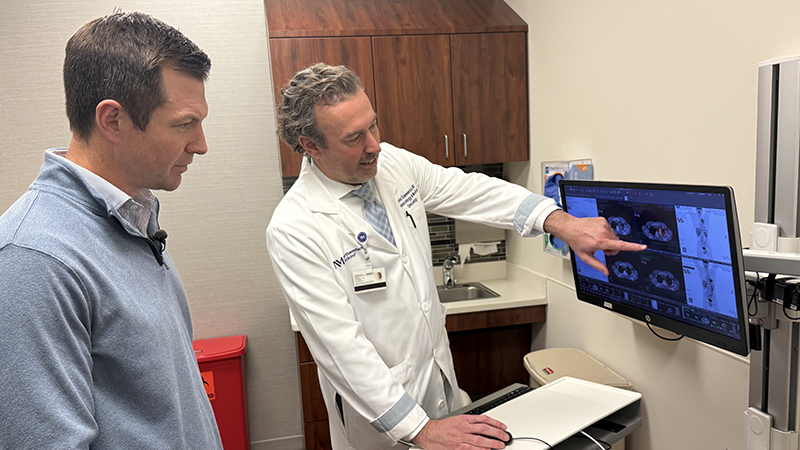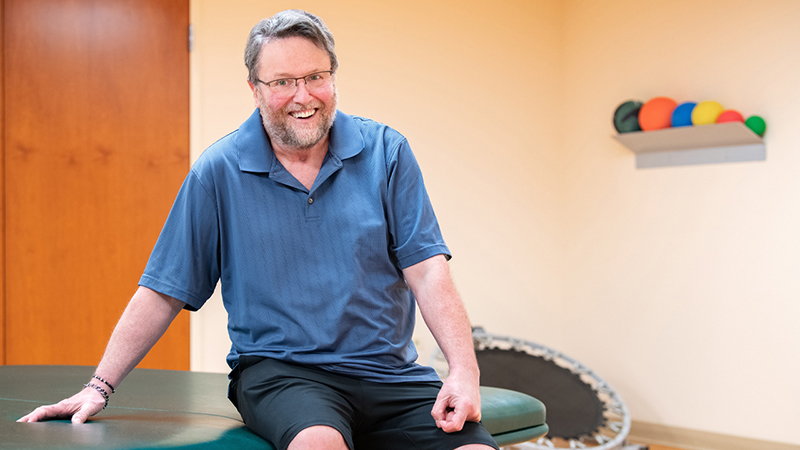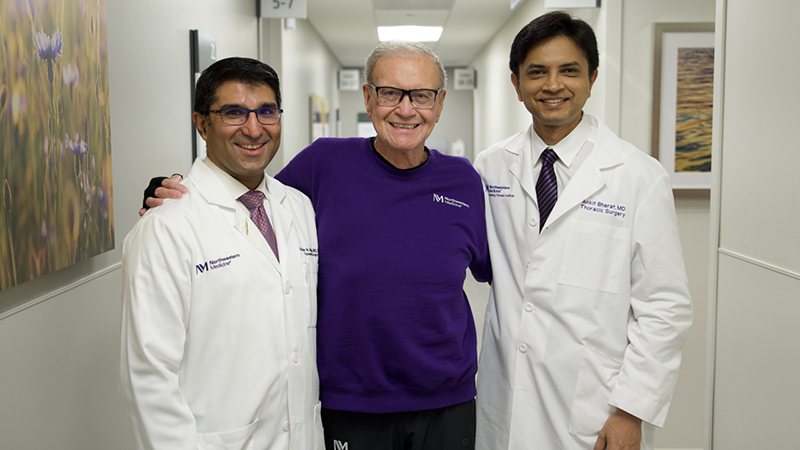Vanessa Stands Up to BRCA2 and Breast Cancer Risk
Published September 2021
Breast Cancer “Previvor” Uses Knowledge as Power
You have an estimated 20,000 – 25,000 genes, which are pieces of DNA that your biological parents pass down to you. They determine everything from the color of your eyes to the curls in your hair.
One of these 20,000+ genes changed Vanessa Herkert’s life: BRCA2. BRCA2 is a gene that helps repair damaged DNA, and therefore helps prevent tumors from forming. That’s why women with a BRCA2 mutation have an increased risk for developing breast and ovarian cancer.
Family History of BRCA2 Mutation
Grandma, aunt and mom: All three of these women in Vanessa’s family tree had breast cancer — and the BRCA2 gene mutation. Vanessa’s uncle tested positive for it, too.
Vanessa never met her grandmother: She lost her life to breast cancer in her 30s. Vanessa’s mom survived breast cancer when Vanessa was in first grade; she then had a prophylactic mastectomy, a surgery to remove both breasts, as a preventive measure.
I felt lucky to be young and educated.— Vanessa Herkert
Vanessa’s aunt passed away from breast cancer in 2014. Then, after 12 years in remission and her mastectomy, Vanessa’s mom was diagnosed with breast cancer again. She passed away four months later.
Risk of Breast Cancer With BRCA2 Mutation
Twelve percent of women will develop breast cancer during their lifetime, but 69 percent of women with the BRCA2 mutation will develop breast cancer by age 80.
Fewer than 1.5 percent of women will develop ovarian cancer during their lifetime, but 17 percent of women with the BRCA2 mutation will develop ovarian cancer by age 80.
Taking Ownership of a BRCA2 Mutation
“I was too young to get tested for BRCA2 when I was in high school, but as a senior in college, I was ready to know,” says Vanessa. “It was a part of the grieving process for me.”
Vanessa tested positive for the BRCA2 mutation. “My family was more upset than I was,” she says. “I felt lucky to be young and educated.”
After connecting with women in support groups who also had an increased risk of developing ovarian and breast cancer, Vanessa realized she wasn’t alone. She felt empowered to take her health into her own hands with egg preservation and a prophylactic mastectomy.
“At age 25 I was afraid of being perceived as ‘too young’ for a decision like this, but after doing the research, I found the right physicians at Northwestern Medicine who assured me that I was justified,” explains Vanessa.
Step One: Fertility Preservation
Before her mastectomy, Vanessa opted to freeze her eggs at Northwestern Medicine Fertility and Reproductive Medicine Clinic because her breast and ovarian cancer risks are so high. She wanted to be able to preserve her fertility if she ever were diagnosed with cancer and had to undergo treatment, which can affect the ability to have children. Vanessa also wanted to be able to test her embryos for the BRCA gene when she’s ready to have children.
“I felt strongly about this. Unfortunately, few women know this is an option for them,” Vanessa asserts. “My grandma died in her 30s, so while I wasn’t trying to start a family at the time, this was in the back of my mind.”
Vanessa met with Northwestern Medicine Reproductive Endocrinologist Eve C. Feinberg, MD, and underwent two rounds of egg retrieval. “Dr. Feinberg was so on board,” adds Vanessa.
“Women with genetic mutations that may affect their ability to have children down the road have a viable option for preserving fertility: Freezing their eggs,” says Dr. Feinberg. “While there is a higher risk for women with BRCA mutations to develop ovarian and breast cancer, the emerging field of oncofertility empowers women to not leave having a family to chance.”
Step Two: Prophylactic Mastectomy
“I was excited when I came to the hospital the morning of my mastectomy, but I didn’t know how hard it was going to be,” says Vanessa. “Everything went so well, and I’m stronger for it now.”
Vanessa had two surgeries, both performed by Northwestern Medicine Plastic Surgeon Neil A. Fine, MD, an expert in breast reconstruction surgery, at the Robert H. Lurie Comprehensive Cancer Center of Northwestern University at Northwestern Memorial Hospital. The first was to remove her breast tissue and insert tissue expanders in preparation for the second surgery, the exchange surgery, when Dr. Fine swapped in permanent breast implants.
Vanessa, who took care of her mom during her second battle with breast cancer, found herself on the receiving end of care. “It was humbling,” she says. “The healing process had ups and downs, but my family members were my biggest champions.”
Now, Vanessa can “do cartwheels and handstands,” and has taken it upon herself to arm others with knowledge of the BRCA2 gene mutation.
Spreading the Word About BRCA2
Vanessa is active in a community of breast cancer “previvors” and survivors, spreading awareness about wellness strategies such as monthly breast self-exams. She’s counseled her younger cousin with the BRCA2 gene mutation to take the same preventive measures that she did, and encouraged her newly married brother to get tested for the gene as well.
“I hope I can empower people to make positive decisions about their own health,” she says. “The greatest gift my mom gave me was the knowledge of this genetic mutation and the power to do something about it.”






